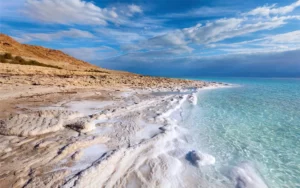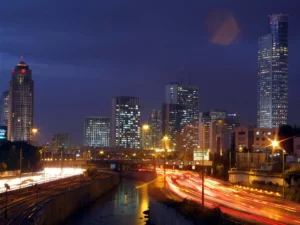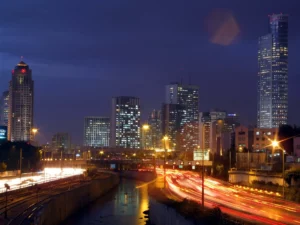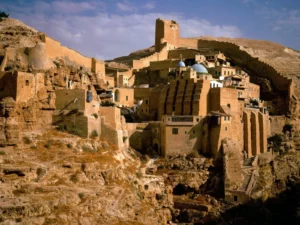Your wanderlust has led you to consider Israel, a land soaked in history, diverse in culture, and rich with unique experiences. But the question arises: is it safe to travel to Israel? It’s not an unusual concern, given the complexity of the country’s geopolitical situation, and occasional flare-ups of tension.
As a discerning traveler, you need to understand the risks and ways to mitigate them. This article is meant to help you in that mission, offering a comprehensive risk assessment and practical guide to travel safety in Israel. We delve into the country’s efforts towards tourist safety, travel advisories, firsthand experiences of travelers, and more.

In every journey, risks exist. The key lies in understanding them and taking steps to protect oneself.
Overview of the Current Situation in Israel
Before you pack your bags and jet off, it’s essential to have a grasp on the current scenario in Israel.
Political Climate
Israel’s geopolitical situation is often complex, and understanding it can seem like a daunting task. There are periodic escalations in tensions and sporadic incidents of violence, primarily in certain regions. However, these situations are usually localized and do not engulf the entire country. Places frequented by tourists, such as Tel Aviv, Eilat, and Haifa, tend to remain calm and welcoming.
However, it’s prudent for visitors to stay updated on current news and follow local guidance. Moreover, regions like the Gaza Strip and areas near the borders with Syria and Lebanon are often advised against for non-essential travel.
Recent Incidents
Let’s now touch on some of the recent incidents. While no country is completely free from risks and unforeseen events, it’s worth noting that Israel takes visitor safety very seriously.
There are now and then instances of rocket attacks from the Gaza Strip, mainly affecting southern Israel. However, the Iron Dome missile defense system intercepts most rockets, and the country’s emergency preparedness system is highly effective. Tourists are generally guided to safety in well-maintained and accessible shelter areas.
Israel’s Efforts Towards Tourist Safety

Your safety, when you’re exploring the historic sites of Jerusalem, or lazing on the beach in Tel Aviv, is a priority for Israel. From stringent security measures to protective policies, the country takes significant steps to ensure the well-being of its guests.
Security Measures
Israel’s reputation for having some of the world’s most stringent security measures is well earned. From the moment you land at the Ben Gurion Airport, you’ll experience this firsthand. Security checks are rigorous, thorough, and may seem more extensive compared to what you’ve seen at other international airports.
Aside from airports, many public places in Israel, including shopping malls, train stations, and even restaurants, have security measures in place. It’s common to have your bags checked or to go through a metal detector before entering these places.
For areas of heightened security concerns, such as Jerusalem’s Old City, police and security personnel are visible and always on alert. While these practices may seem intimidating at first, they are there to ensure everyone’s safety.
Policies for Tourist Protection
In addition to on-the-ground measures, Israel has policies in place for the protection of tourists. For instance, the Israel Ministry of Tourism has a dedicated “Tourist Police” service to assist visitors. They’re available 24/7 for help, whether it’s a minor issue like losing your passport or a significant concern like reporting a crime.
The government’s investment in tourism infrastructure also significantly enhances tourist safety. There are well-maintained roads, a reliable public transportation system, and signages in English in major cities and tourist sites. Furthermore, emergency medical services in Israel are world-class, and immediate help is always available.
Public Awareness and Preparedness
Another significant aspect of Israel’s approach to safety is the emphasis on preparedness. For instance, the Home Front Command, a branch of the Israeli Defense Forces, provides real-time updates and instructions in case of emergencies. The Pikud Ha’Oref app, available in multiple languages, including English, sends notifications about siren warnings and safety instructions.
Likewise, hotels, guesthouses, and other places of accommodation are required by law to have safe rooms or direct access to bomb shelters. Information about emergency procedures and evacuation routes is readily available to tourists.
Travel Advisory and Guidelines

Taking the leap and deciding to visit Israel is just the beginning. As with any destination, being aware of travel advisories and understanding essential guidelines play a significant role in ensuring a safe journey.
Country-specific warnings
Before your departure, always check your home country’s travel advisory for Israel. These advisories offer up-to-date information on safety and security, local laws and customs, health conditions, and more.
For example, U.S. citizens can refer to the U.S. Department of State’s travel advisory, which rates countries on a scale of 1 (Exercise Normal Precautions) to 4 (Do Not Travel). As of now, Israel is rated at Level 2 (Exercise Increased Caution), with specific regions like Gaza Strip and the West Bank at Level 4 due to terrorism concerns.
The UK’s Foreign, Commonwealth & Development Office (FCDO) offers a similar service, advising against all travel to Gaza, the Sheba’a Farms, and Ghajjar along the border with Lebanon. Regular updates on health, safety, and security make these resources invaluable for potential travelers.
General Tips
While each journey is unique, these should guide you towards a safer experience in Israel:
Stay informed: Keep an eye on the news and be aware of any significant happenings that might affect your travel. Several apps, such as the Red Alert: Israel, provide real-time updates about rocket sirens across the country.
Respect local customs: Israel is a cultural melting pot with a mix of religions and traditions. Dress modestly, particularly when visiting religious sites.
Know emergency numbers: The emergency number in Israel is 100 for police, 101 for medical emergencies, and 102 for the fire department. Having these numbers handy can make a significant difference in an emergency.
Be prepared for security checks: Security checks are comprehensive and can happen at any place, from airports to malls and entrances to public events.
Case Studies

A great way to understand the reality of safety in Israel is by exploring the experiences of those who have journeyed there before you. Let’s delve into some real-life cases that highlight both the positive and negative aspects.
Positive
a. The Safe Journey of Sarah
Sarah, a solo female traveler from Canada, visited Israel for two weeks, touring the major cities of Tel Aviv, Jerusalem, and Haifa, as well as venturing to the northern areas of the Golan Heights. Despite initial concerns about safety, Sarah found her experience to be largely positive. She felt safe walking around the cities, even at night, and was impressed by the visible security presence.
b. The Hendersons
The Henderson family, a family of five from Australia, also shared a positive experience from their trip to Israel. Their travels included a variety of activities, from exploring ancient sites in Jerusalem to enjoying beach days in Eilat.
They appreciated the thorough security checks at tourist attractions and felt reassured by the visible police presence. Despite facing a couple of security alarms due to the regional tensions, the family felt safe due to the immediate response and guidance from local authorities. They emphasized the importance of travel insurance and awareness of emergency procedures in contributing to a safe journey.
Negative
While most travelers recount positive experiences, it’s important to consider the negative scenarios as well to be fully prepared.
a. Jason’s Incident at a Border Checkpoint
Jason, a U.S. citizen, had an unsettling experience at a border checkpoint while trying to visit Bethlehem in the West Bank. He was questioned extensively and felt uneasy during the process. His story highlights the importance of preparedness for rigorous security checks and potential scrutiny, especially in sensitive areas.
b. The Unfortunate Theft Experience of Maria
Maria, a solo traveler from Spain, faced an unfortunate incident of theft in a crowded market in Tel Aviv. While she was exploring the marketplace, her wallet was stolen, causing considerable distress. This incident underscores the need for vigilance and care with personal belongings, even in generally safe areas.
Risk Mitigation

Understanding potential risks is the first step, but it’s equally important to know how to mitigate these risks to ensure a safe trip:
Be Prepared
Preparation is the foundation of a safe journey. This includes reading up on Israel’s history and current situation, understanding local customs, and checking official travel advisories. Make sure you are aware of the political climate and potential areas of unrest.
Stay Informed
While in Israel, keep yourself updated on the current situation. Use local news sources and apps, It’s essential to take local warnings seriously and follow any advice given.
Protect your valuables
Take measures to protect your valuables. Don’t carry too much cash, keep your passport safe, and be cautious when in crowded places where pickpockets may operate.
Understand local customs and respect them
Israel is a country with deep religious and cultural traditions. Understand and respect these customs, especially when visiting religious sites. This will not only ensure your safety but also enrich your travel experience.
Take care of your health
Israel can be hot, especially during the summer months. Make sure to stay hydrated, wear sunblock, and take necessary precautions against heatstroke.
Get travel insurance
It’s always a good idea to have comprehensive travel insurance that covers theft, loss, medical emergencies, and even trip cancellations.
Final Thoughts
Taking a step back and assessing the risks involved in traveling to Israel, it’s clear that, like any country, it comes with its own unique set of challenges. The geopolitical situation can be complex and security concerns are not uncommon. However, the risks shouldn’t overshadow the rich cultural experience, stunning landscapes, historical significance, and warm hospitality that this unique nation offers.
As we’ve seen from the experiences shared, traveling there can be safe if you stay informed, prepare adequately, respect local customs, and exercise reasonable caution. The responsibility of staying safe, to a large extent, rests on you, the traveler.
Your journey in Israel can be a rewarding experience, filled with historic exploration, beachside relaxation, and culinary delights. It is a testament to human resilience, a blend of old and new, and a fascinating intersection of cultures, religions, and peoples.
The key to safety lies in awareness and preparedness. With the tips and strategies we’ve outlined, you’re now equipped to mitigate risks, handle unforeseen circumstances, and make informed decisions.

